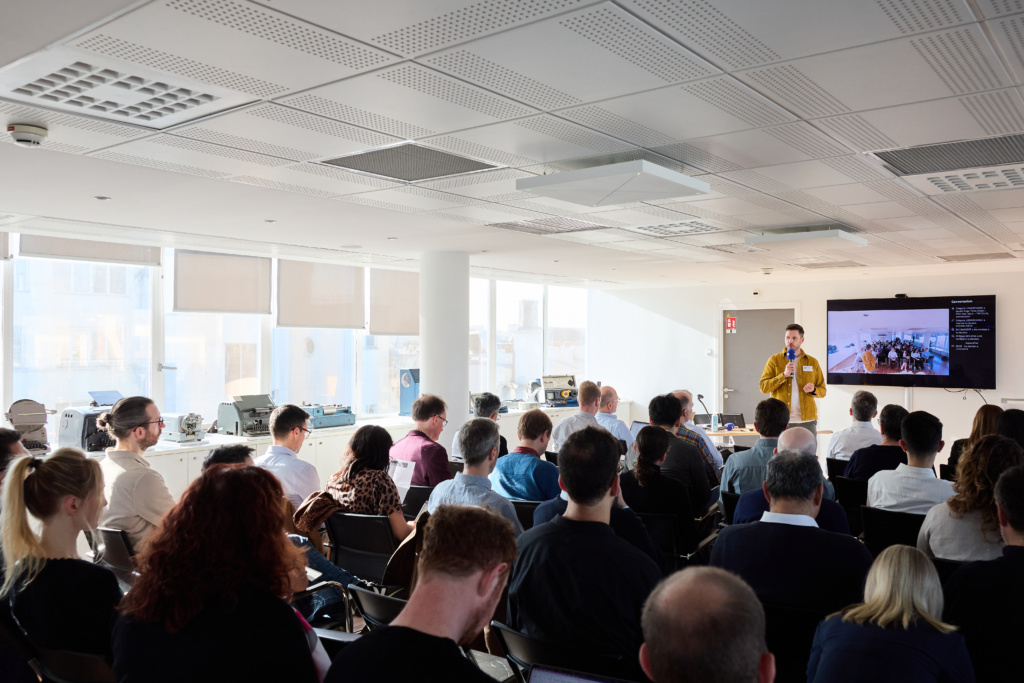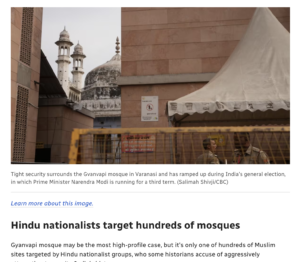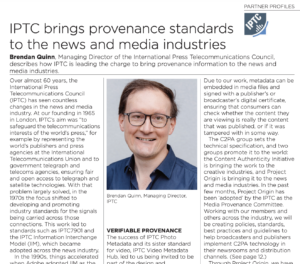Categories
Archives

“It has never been more important to safeguard authentic news media,” say the organisers.
“We must strengthen our voice and hold our ground against the big tech players. It is critical that the industry works together,” said Fabrice Fries, Chief Executive Officer at AFP, in his opening remarks for the workshop in Paris.
“At AFP we are committed to ensure that both news organisations and the general public can inspect the provenance of our images. This transparency builds trust,” said Eric Baradat, the global news deputy director for photo and archives at AFP.
AFP, BBC and Media Cluster Norway jointly organised the workshop, which was hosted by AFP and supported by the International Press Telecommunications Council (IPTC). The workshop focused on image metadata and how the C2PA standard, also known as Content Credentials, can safeguard it.
“The challenges the news industry are facing are so great that we can only succeed if we work together. Making sure the public can discern between authentic media and content made by generative AI is vital not only for news organisations, but for democratic societies,” said Helge O. Svela, CEO of Media Cluster Norway.
More than 40 people from over 20 news organisations participated in the full day workshop. Among the presentations was a study commissioned by Media Cluster Norway’s Project Reynir on how media consumers respond to being shown more detailed information about an image. The study was conducted by MediaFutures at the University of Bergen, and built on a user study conducted by the BBC.
“Trust is earned. At the BBC we have seen that users really engage when we show them how their news was made. Extra media provenance details such as when and where an image was taken, or the steps used to verify it, make a real difference to how users trust their news. The C2PA standard can allow us to share this information with the users in a secure and trustworthy way,” said Judy Parnall, Principal Technologist, BBC Research and Development.
Among the participants in the workshop were CBC-Radio Canada, Deutsche Welle, France TV, ITV, NHK and Al Jazeera. Topics discussed included carrying provenance metadata from glass to glass versus adding it at the point of publishing, as well as the importance of redaction to the media industry and content provenance for media archives.
“It is vital that the needs of the news media ecosystem are heard as this technology and standards are further developed and refined,” said Brendan Quinn, Managing Director at IPTC.
The IPTC Media Provenance Committee works on several initiatives for implementing and furthering the development of the C2PA technology for the media industry. Many of the speakers and participants of the Paris workshop are actively involved in this work.
For more information on IPTC and the Media Provenance Committee, contact the IPTC via this site.

A few months in, things are going very well for the IPTC’s new Media Provenance Committee.
The IPTC Committee was initiated to continue the work started by Project Origin to bring the benefits of C2PA provenance technology to the news media industry. The Committee is chaired by Bruce MacCormack of CBC / Radio Canada.
The Committee has initiated three Working Groups who will be looking at specific issues:
- The Provenance Governance Working Group, led by Charlie Halford of the BBC.
- The Provenance Best Practices and Implementation Working Group, led by Helge O. Svela of Media City Bergen.
- The Provenance Advocacy and Education Working Group, led by Judy Parnall of the BBC.
We have also started the process of onboarding participants for the next phase of the Origin Verified News Publishers List, and have had several organisations already apply.
The first publishers on the list, BBC and CBC/Radio Canada, have already published some C2PA-signed content:
- The BBC has published some images and video with C2PA-embedded metadata showing the fact-checking process that has been undertaken by the BBC Verify fact-checking team.
- CBC / Radio Canada has published images signed with the CBC certificate on the cbc.ca website.
We are planning several events in the future to promote our work and encourage more in the media industry to get involved. Look out for news about IPTC Media Provenance work at the IBC Conference in Amsterdam in September and at other events.
If your organisation would like to be added to the list in the next phase or in the future, please get in touch!

The IPTC’s Managing Director, Brendan Quinn, has written an article for the latest edition of the European Broadcasting Union’s technical magazine, EBU tech-i.
In the article, Brendan promotes the IPTC’s work in Media Provenance, including the founding of the IPTC Media Provenance Committee.
Brendan’s article can be found on page 17 of the PDF or print copy or the magazine.
The issue also contains a piece by Judy Parnall of the BBC, current Chair of the Committee, also covering C2PA and our joint work on media provenance.
The issue also contains interesting insights from European broadcasters on AI in media production, innovating to meet the challenges of covering the Paris 2024 Olympics, the creation of an Enterprise Architecture working group within the EBU membership, cybersecurity for media outlets, the future of broadcast radio in a world connected cars, and more.

The International Press Telecommunications Council, in conjunction with Project Origin, has established a working group to create and manage a C2PA compatible list of verified news publishers.
The open C2PA 2.0 Content Credentials standard for media provenance is widely supported as a strong defence against misinformation. Recent announcements by OpenAI, Meta, Google and others have confirmed the value of an interoperable, tamper-evident way of confirming the source and technical integrity of digital media content.
Project Origin, as a co-founder of the C2PA, has brought the needs of the news publishing community to the forefront of the creation of this standard. This now includes the creation of a C2PA 2.0 compatible Origin Verified Publisher Certificate to be used by publishers to securely create a cryptographic seal on their content. The signing certificates will be available through the IPTC, who will work with C2PA validators to gain widespread acceptance. These signing certificates will be issued by the IPTC to broadcast, print and digital native media publishers.
Origin Verified Publisher Certificates will ensure that the identity of established news organisations are protected from imposters. The certificates confirm organisational identity and do not make any judgement on editorial position. Liaison agreements with other groups in the media ecosystem will be used to accelerate the distribution of certificates.
The initial implementation uses TruePic as a certificate authority, with the BBC and CBC/Radio-Canada as trial participants.
“As a founding partner of Project Origin, CBC/Radio-Canada is proud to be one of the first media organisations to trial Origin Verified Publisher Certificates,” said Claude Galipeau, Executive Vice-President, Corporate Development, CBC/Radio-Canada. “This initiative will provide our audiences with a new and easy way of confirming that the content they’re consuming is legitimately from Canada’s national public broadcaster. It’s an important step in our adoption of the Content Credentials standard and in our fight against misinformation and disinformation.”
Jatin Aythora, Director of BBC R&D, and vice chair for Partnership on AI, said “Media provenance increases trust and transparency in news, and so is an essential tool in the fight against disinformation. That fight has never been more important, and so we hope many more media organisations will join us in securing their own Origin Verified Publisher Certificate.”
Publishers interested in working cooperatively to advance the implementation of the C2PA standard in the news ecosystem are invited to join the Media Provenance Committee of the IPTC.
For further information please contact:
- Judy Parnall – judy.parnall@bbc.co.uk – representing the BBC
- Bruce MacCormack – bruce@neuraltransform.com – representing CBC/Radio-Canada
- Brendan Quinn – mdirector@iptc.org – representing the IPTC